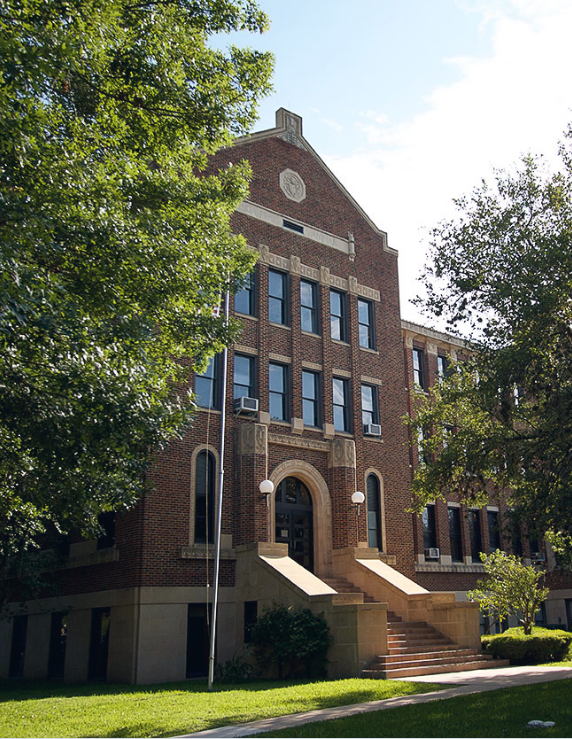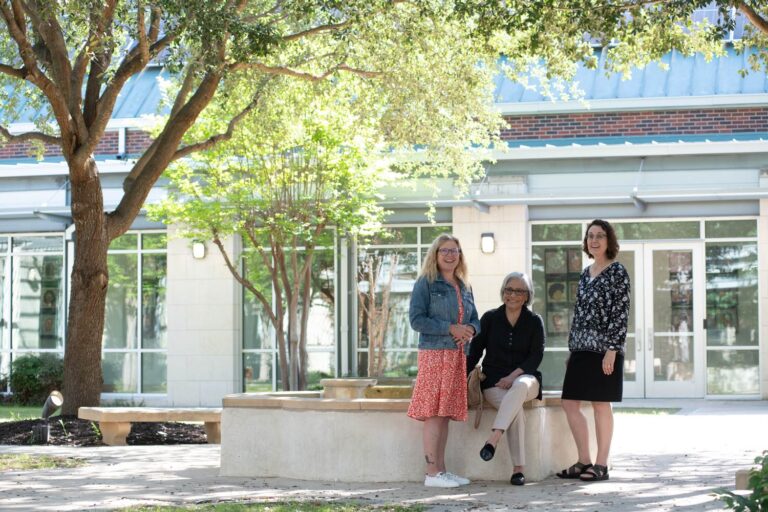For many Latinos, Cesar Chavez was the standard bearer for a revolution in empowerment and the inspiration for good causes, but his abiding faith and deep spirituality were what truly distinguished him, his son Paul Chavez said.
The younger Chavez was the main keynote speaker Sept. 22 at Oblate School of Theology‘s Institute of Spirituality and Social Justice, whose theme was “Faith Seeking Justice.” He said his father was a beacon of hope whom many saw as the Gospels in action.
“He led peregrinaciones (pilgrimages), not just marches. At the head of the peregrinacions was a standard of Our Lady of Guadalupe, the patron saint of Mexico. Masses were celebrated during union conventions and other union functions. His fasts were not hunger strikes (political acts to get someone to do something); his fasts first and foremost were directed at himself. They were acts of penitence in the Catholic tradition…for what he perceived to be his shortcomings as a leader,” said the civil rights leader’s son, who is President of the Cesar Chavez Foundation in Keene, Calif.
He said his father’s vision was much bigger than better wages, hours and working conditions. In the 1980s, Chavez and the Rev. Chris Hartmire wrote a Prayer for the Farm Workers that still guides the United Farm Workers and the Cesar Chavez Foundation. It’s not solely for the farm workers, either, his son pointed out. It’s also for others, because Chavez was convinced that God is present in every person and that non-violence was more successful than violence. “He would say, ‘When you practice non-violence, then you are in control of the fight, instead of reacting to attacks from your opposition.” He saw violence as a shortcut for angry, frustrated people,” and Chavez didn’t believe in shortcuts.
“My father also understood that grape strikers were not just struggling for better wages and conditions; they were really struggling for respect. He knew that violence might scare the growers into concessions but it would never earn their respect,” Paul Chavez explained.
During his first long fast, Chavez prayed and reflected on his own actions and shortcomings. He lost 35 pounds in 25 days, but as followers saw his suffering, the younger Chavez said, “they asked themselves, ‘If he’s willing to die for his beliefs, what more am I willing to do?’” The talk of violence stopped, and the grape strikers kept sacrificing for two and a half years. The boycott persuaded the growers to sign their first union contracts in 1970 and established the first enduring farm workers’ union in U.S. history.
Cesar Chavez firmly believed that real change would never come unless farm workers took personal responsibility for building their own union. He declared that how workers used their lives would determine what kind of men they were. “The truest act of courage, the strongest act of manliness, is to sacrifice ourselves in a totally nonviolent struggle for justice,” his son quoted him as saying. “To be a man is to struggle for others. God help us to be men.”
In his 31 years leading the farmer workers’ union, Cesar Chavez had many more defeats than victories, but he declared, “Victory is ours if we persist, if we resist, and if we refuse to give up.”
A Catholic, Chavez drew inspiration from African American Protestant church services with their enthusiastic singing and clapping, as well as from the Southern civil rights movement’s songs such as “We Shall Overcome,” and the Catholic Cursillo Movement. The farm workers used a variety of art forms to enliven the spirit of their movement and to celebrate life. Paul Chavez recalled that his father fostered a community in which thousands joined him to work for social justice and to live out the principles of nonviolence, self-sacrifice and service.
He moved the union headquarters from Delano, Calif., to a place he christened Nuestra Señora de la Paz (Our Lady, Queen of Peace) on 187 acres in Keene, in the mountains near Bakersfield. It offered Chavez and many others a place of peace where they could rest and renew themselves for later battles. He invited the Brazilian Archbishop Dom Helder Camara, actor Anthony Quinn and Mexican singer Cornelio Reyna to speak to the community.
Paul Chavez recalled that his father maintained relationships with Catholic and Protestant organizations that organized people around things other than money, such as Catholic religious orders, the Bruderhof Christian sects who served the poor, Dorothy Day’s Catholic Worker movement and Hare Krishna communities.
“My father understood the strength of community,” the younger Chavez commented. “When people work and eat together, it can be very powerful. At La Paz, people drew strength from one another and lived their lives for a common cause,” he said. Today, countless U.S. communities honor Cesar Chavez with schools and streets named for him, and 11 states include his birthday as an official holiday. In 1994, Chavez was posthumously awarded the Presidential Medal of Freedom by President Bill Clinton.
Yet Chavez never saw himself as a hero; in fact, he was uncomfortable being singled out for recognition, refused most personal awards and rarely allowed anyone to name something for him. He ensured that his movement remembered five martyrs who lost their lives during the farm workers’ strikes – Nan Freeman (Jewish), Nagi Daifallah (Muslim), Juan de la Cruz, Rufino Contreras and Rene Lopez (Catholics).
J. Michael Parker
Prayer of the Farm Worker’s Struggle
Show me the suffering of the most miserable, so I will know my people’s plight;
Free me to pray for others, for you are present in every person;
Help me to take responsibility for my own life, so that I can be free at last;
Grant me courage to serve others, for in service there is true life;
Bring forth song and celebration, so that the Spirit will be alive among us;
Let the Spirit flourish and grow, so that we will never tire of the struggle;
Let us remember those who have died for justice, for they have given us life;
Help us love even those who hate us, so we can change the world.
By Cesar Chavez



